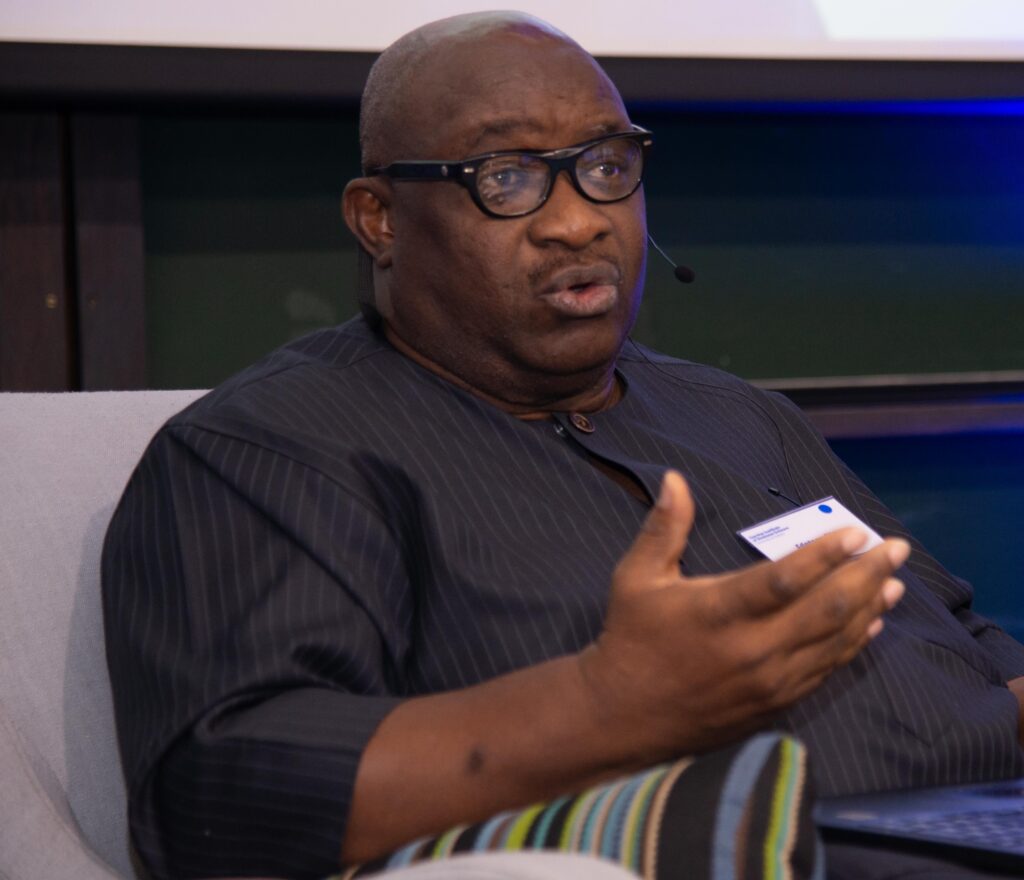The media must find ways to enlighten their audiences about the importance of the news and information that journalism provides to society if they are to overcome the challenge of sustainability currently confronting the sector across the African continent, according to Mr Edetaen Ojo, Executive Director of Media Rights Agenda (MRA).
Speaking at a conference on “Big Tech and Journalism – Building a Sustainable Future in the Global South” organized by the Gordon Institute of Business Science (GIBS) of the University of Pretoria in Johannesburg, South Africa, on July 13 and 14, 2023, Mr. Ojo noted that it was very disappointing that large sections of the population in many countries do not seem to appreciate the critical importance of reliable news and information in their lives and decision-making on many different levels.
He said although there is no doubt that the emergence of social media and other digital platforms had exacerbated the threat to media sustainability and public interest journalism across Africa, the massive loss of audiences by mainstream media to Big Tech could also be attributed to a failure of legacy media to convincingly demonstrate their importance and value to those now seeking other sources of information.
Mr. Ojo described the Nigeria situation as ironic, saying that despite the country’s large population, the media market remains largely undeveloped with the result that the economic situation of the media is extremely challenging.
He said: “The challenge of sustainability is not new to the Nigerian media environment, but it has clearly worsened in recent years to the extent that many media organizations are no longer able to pay staff salaries. In this environment, they are no longer able to attract or retain good journalists. While in some cases, media organizations are laying off staff to reduce operating costs, in many other cases, the staff are leaving on their own volition and venturing into other sectors, with the most attractive options being becoming image makers for politicians and corporate bodies.”
Indeed, Mr. Ojo noted, there are also many cases of media professionals completely leaving the information sector and becoming traders or engaging in any activity that would increase their economic well-being.
According to him, “there are many factors responsible for the sorry state of the media in Nigeria, including poor public infrastructure to support media operations, chief of which are poor electricity supply, poorly developed transportation system in a large country, low quality telecommunication services, among others. Making up for these inadequacies places a huge burden on the operations of media organizations.”
Mr. Ojo lamented that “For some strange reason, as media organizations begin to struggle with these issues, the first place where they make cuts is personnel; they either lay off staff or they retain them but just stop paying them salaries.”
He admitted that the challenges facing the media pre-date the emergence of Big Tech but said there was there is also no doubt that Big Tech had exacerbated the situation.
He said: “In the 1980s and 1990s, or earlier, before the arrival of Big Tech, while the markets were also undeveloped, they were certainly performing better than they are doing today. Circulation figures for newspapers were ten times better than they are today. Individuals and organizations made provision in their budgets for the purchase of newspapers on a regular basis.
People routinely listened to the radio and watched television, thereby increasing their audiences and bringing in more revenues for them.”
Mr. Ojo however observed that “Today, no one wants to pay for news or information. They get loads of information online, apparently ‘free of charge’, faster, more conveniently and more easily. It is therefore difficult and, in many cases, simply impossible to convince people to pay for news and information that they can get online free of charge, even with the reality that much of the information they are getting in this manner is of dubious quality.”
He argued that with business models based largely on revenues from sales and subscriptions as well as advertising, all of which are tied to the sizes of their audiences, the media sector is, not surprisingly, facing an existential challenge as “they are losing their audiences at an alarming rates along with advertising revenues, most of which are going to social media, digital and other technology platforms.”







